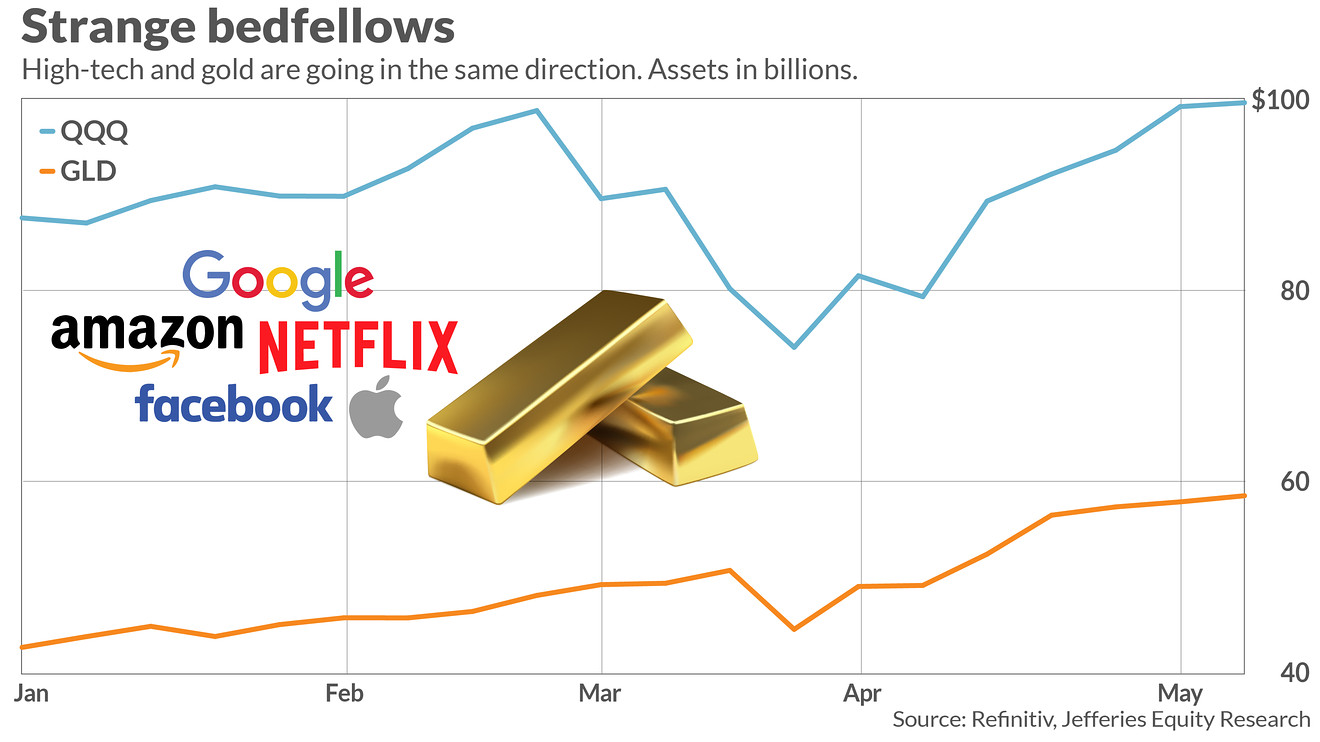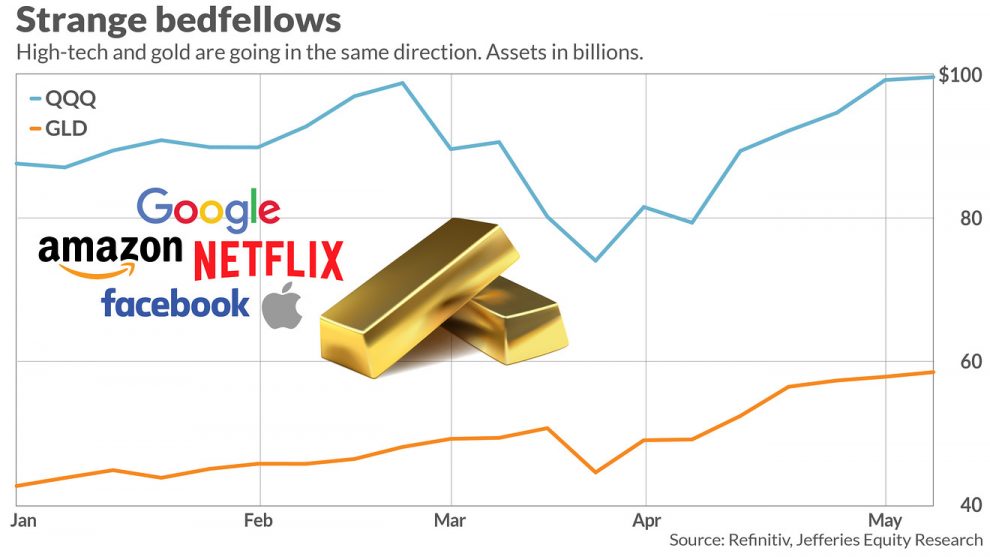
Gold and high-tech related companies might not seem to have a lot in common. One is a physical commodity, considered one of the world’s oldest and most durable forms of currency, and prized by investors for its safety. The other represents the most modern companies with innovations that help power an economy increasingly structured around “knowledge work.”
Yet investors are flocking to both, at roughly the same pace, this year.
The chart above shows inflows to two exchange-traded funds: the SPDR Gold Shares GLD, +0.59% and the Invesco QQQ Trust QQQ, +0.22%. Each is the oldest, largest, and most liquid ETF in its class. They are, in the words of Jefferies equity analysts, “two unlikely ETFs going in the same direction.”
Related:ETF survival of the fittest shows just what’s going on in financial markets
The correlation isn’t perfect: GLD has seen its assets under management roar 33% higher in the year to date, while QQQ’s increase is up by about 14%, according to Refinitiv data. GLD’s price is up nearly 12%, while QQQ has gained more than 6%.
But the steady upward trajectory for both is noteworthy. There are lots of separate reasons each asset class is churning higher: the biggest names in QQQ, like Amazon.com Inc., Netflix and Microsoft all offer some of the most convincing investment theses for how we’ll live in the post-pandemic world.
And as for gold, investors may still be skittish. “With uncertainty still high, we believe gold GC00, +0.54% will trade at $1,800 per ounce this year,” said Mark Haefele, chief investment officer for UBS AG Global Wealth Management, in a recent outlook.
Analysts at Bank of America last month raised their price target on the yellow metal to $3,000 an ounce from $2,000.
More than anything, though, the market seems to be increasingly split between haves and have-nots, as MarketWatch’s Mark DeCambre explained in a late April deep dive.
The Tell:Why the stock-market rally is signaling an ‘abnormal’ economic recovery, not a V-shaped rebound
In unsettled times, investors remain more comfortable with proven winners, and tech has dominated the past few years of this cycle. So has gold, in its own way, as bond yields fall to all-time lows and global central banks shy away from buying sovereign debt issued by other countries.





